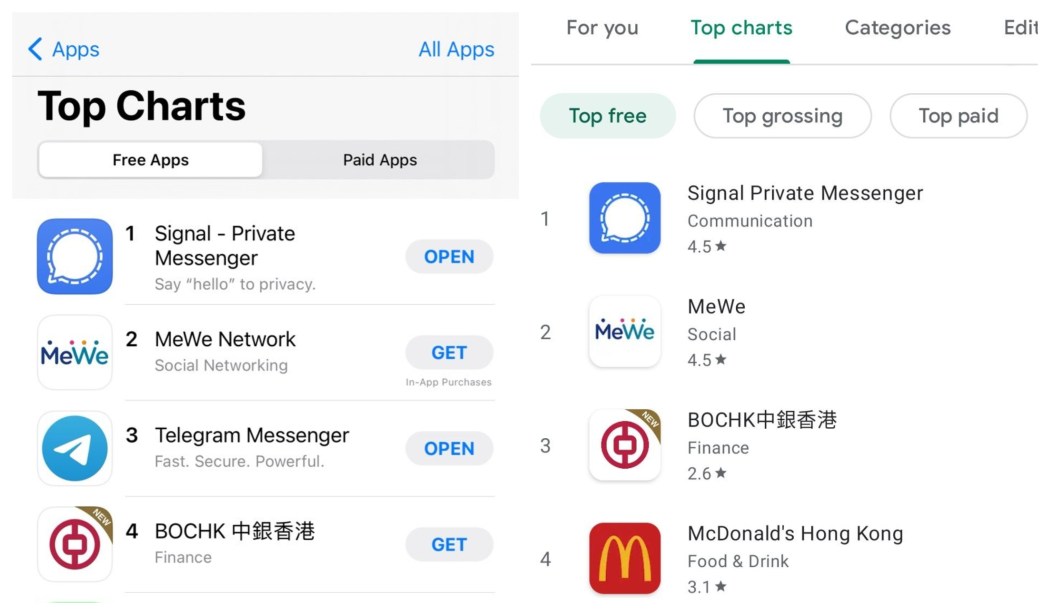Hong Kong’s Privacy Commissioner has urged WhatsApp to clearly explain their plans to share information about users with its parent firm, as some Hongkongers worried about safeguarding their data shift to other encrypted messaging apps.
Since WhatsApp last week announced an update to its terms and privacy policy so it can share personal data with Facebook, social media users and influencers in Hong Kong have encouraged each other to move over to Signal.

By Tuesday, Signal had topped Hong Kong’s app charts for both Android and iOS app stores.
In a statement on Monday, Privacy Commissioner Ada Chung said she was “concerned that the data to be shared includes a substantial amount of personal data, and would “remind users to deliberate carefully and clearly understand the details of the new Terms and Privacy Policy before they give consent […] whether they are willing to transfer their personal data to companies associated with the messaging app for storage and use.”

Chung also urged the app to clearly explain to users what the changes entail and how the collected data will be used, to consider excluding users who do not use Facebook, to provide alternatives to users who do not consent to the update, and to extend the February 8 deadline.
If users do not give consent to the changes by then, they will be blocked from using key features of WhatsApp.
In an interview with Hong Kong tech news website Unwire, WhatsApp’s Asia-Pacific communications director Sravanthi Dev said that if users fail to accept the new terms by the deadline, they would no longer be able to send messages, read incoming messages or make calls. But they could still receive text notifications and take incoming calls.
Defending the changes, Dev also said the update was mainly to notify organisations using WhatsApp’s Business API that their communications may be stored on Facebook’s servers. It did not mean additional personal data would be collected from users and did not mean Facebook would be able to access them, she said, emphasising that messages were end-to-end encrypted and could not be read by the company.
According to the update announcement, the app currently collects information including the user’s phone number, transaction data, mobile device information, IP address, other logs and metadata. It also receives from the user data including their profile name of choice, profile picture, messages sent under certain circumstances such as undelivered messages, contacts in the user’s address book, location and status.
The document stops short of specifying what data will be shared with Facebook and its subsidiaries.

Wong Ho-wa, a representative for the IT constituency in the chief executive’s election committee, told HKFP that the change will likely generate more business opportunities for WhatsApp, by offering advertising and personalisation in the app.
“Both softwares use end-to-end encryption, so even if the police seize hard disks from data centres, they will still have no idea what was in the messages,” Wong said. “But they are still collecting other information like your IP, your contacts, this information may still be under their scope. […] In terms of privacy, in the long term I would say Signal is the better choice.”
Support HKFP | Policies & Ethics | Error/typo? | Contact Us | Newsletter | Transparency & Annual Report | Apps
Help safeguard press freedom & keep HKFP free for all readers by supporting our team

LATEST FROM HKFP
HKFP has an impartial stance, transparent funding, and balanced coverage guided by an Ethics Code and Corrections Policy.
Support press freedom & help us surpass 1,000 monthly Patrons: 100% independent, governed by an ethics code & not-for-profit.










